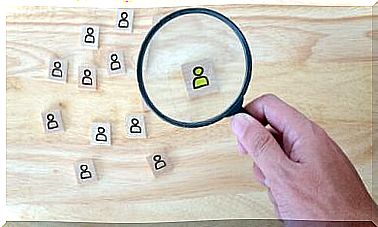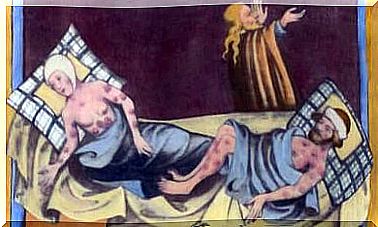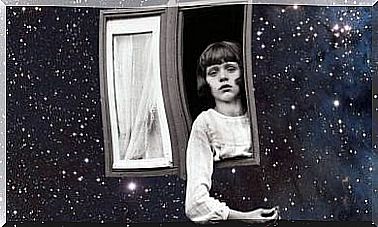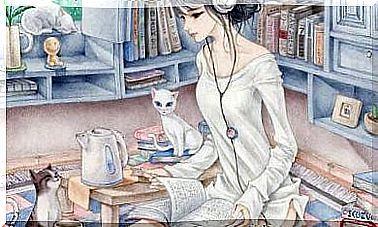Synchronicity, The Curious Science Of Chance
“The world is small !” is an expression that you have surely used or heard at some time. It is pronounced when a situation of chance or singular occurs. A chance meeting with someone you know in a big city can be a good example of chance. But what if we knew that it actually has to do with a science called synchronicity?
Even if it seems incredible, important researchers have studied and tried to identify the relationships that can exist between two improbable stamped phenomena or that they appear to be unrelated. And it is not unknown researchers who have tried to give an explanation. Carl Jung, for example, is the one who gave birth to the term “synchronicity”.
“Once is a coincidence, twice is a coincidence, and three times it is the action of the enemy.”
-Ian Fleming-
What is synchronicity?
Sometimes we think the universe is sending us signs when coincidences that seem incredible happen. But, for Jung, it is synchronicity, which could be defined as the simultaneity of different events linked by a meaning that is not that of chance.
That is to say, this singular science can be summed up in a temporal coincidence of a series of events (two or more) which, even if they are linked to each other, are not linked by a causal link. to effect. However, there is a content link.
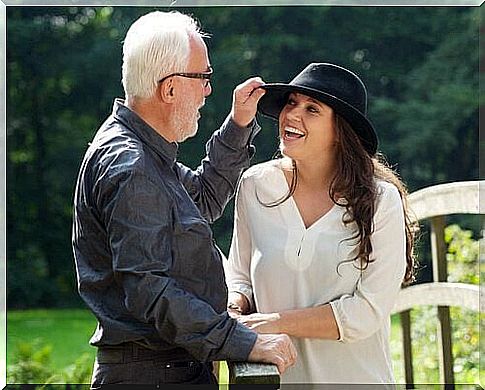
To try to understand better, imagine that you have a good friend. One day, you talk to your father, you tell him about this friendship and you give him his name, his relatives etc. So, one thing leading to another, your father realizes that you and your friend have a distant family link because your grandfather and his grandmother were second cousins.
The fact that you and your friend are related has nothing to do with your friendship or how it developed. However, there is a content link, but no coincidence.
More curious details about synchronicity
Many authors have studied things without knowing this particular science. For Friedrich Schiller, for example, chance arises from deep sources, and there is no such thing as coincidence. However, surrealist André Breton saw chance as something objective: when desires converge with what the world offers.
But according to Jung, when we talk about synchronicity, we are referring to the union of inner and outer events. Thus, the individual who experiences these events finds meaning in the unification of them.
Even if we refer to metaphysics to justify these events, such as chance or luck, and even magic, in reality they would arise in the form of unconscious attraction. An unconscious attraction that causes their appearance, at least that’s what Jung says. This leads us to pattern recognition.
This is why this author’s theory, which is born from psychoanalysis, shocks the most rationalist and materialist movements. The famous psychologist established periods more conducive to the appearance of synchronicity than others.
Pattern recognition
You should know that Jung established synchronicity or occurrence as a search for recognizable patterns. Thus, according to the psychoanalyst, periods following the death of a loved one or professional changes cause a greater energy for chance. This is because the changes that take place in us after these situations lead us to look for recognizable patterns that make sense with our research. So this recognition impulse that we all seemingly have would be the basis of synchronicity.

According to some studies, during times of high amounts of dopamine in the brain, stressful situations or high emotional load, we have a penchant for magical thinking. But this magic, which would be chance, is in fact the fruit of synchronicity.
We must not banish our need to look for models. It is something natural that we have had in the human mind since time immemorial. This type of thinking is linked to anhedonia, the non-existence of which could cause the inability to experience pleasure. That is, in reality, it is an ability that has helped us survive for thousands of years.
“I don’t believe in chance or need. My will is fate. ”
-John Milton-
So, don’t think that chance is so “crazy”. We are inclined to look for patterns and often our brains handle information unconsciously. It is a precious mechanism that also helps us in decision-making. Maybe there is no such thing as the magic of chance, but it can be nice and useful to think so anyway!
Also read:
